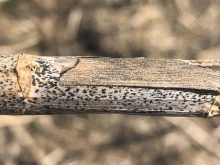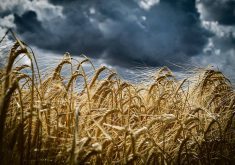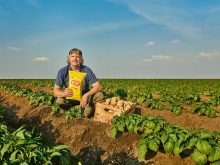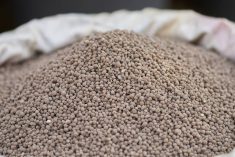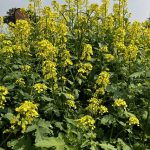Rimbey dairy farmer Jan Slomp says agriculture needs the National Farmers Union because it takes a long-term view and stands up for all farmers
Earlier this month, Rimbey dairy farmer Jan Slomp was acclaimed as president of the National Farmers Union (NFU), the voluntary member-based producer organization headquartered in Saskatoon. Recently, Slomp spoke with Alberta Farmer editor Will Verboven.
Alberta Farmer: Could you tell me a little bit about yourself, your background, and your farming operation?
Jan Slomp: I started farming in the Netherlands in 1979, where we milked 50 cows and farrowed 100 sows for a number of years. We had no prospect of expanding much so we started looking around at other countries like Canada, and in the late ’80s we arrived here and started a dairy. We are in the dairy business and milked as high as 90 cows, but since then have downsized. We use holistic practices in our operation and found we are just as successful with fewer cows as when we had 90 cows. We are self-contained, we purchase very little outside inputs. We are a mixed farm.
Read Also
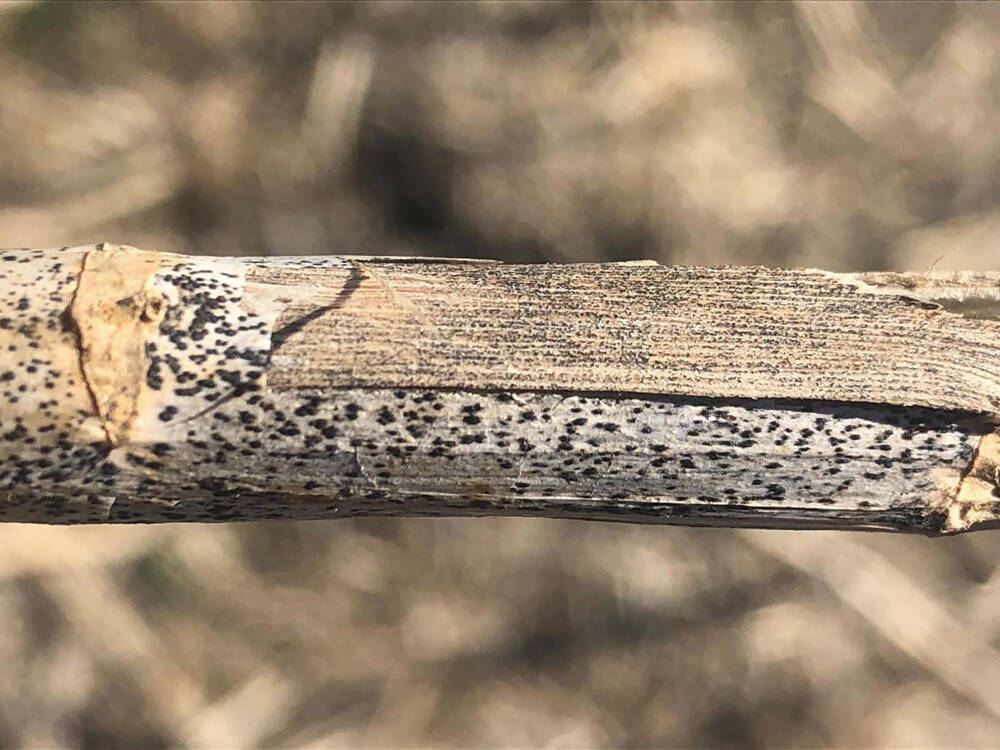
A look at disease prevalence in Alberta crops in 2025
Crop assurance program lead gives irrigated farmers a recap of disease prevalence in crops throughout Alberta
How long have you been involved with the NFU and what is the membership in Alberta?
I have been a member since 1989. I had an interest in the development of agriculture in Western Canada and being an NFU member gave me an education in its history and development for which I am very thankful. But I am concerned with the general direction of agriculture today. The NFU has thousands of members across Canada, but we don’t have a lot of members in Alberta. They are spread out across the province from Brooks to the Peace, but there is a concentration of members in the east-central area. We are not a checkoff organization. It’s completely voluntary.
Is consolidation in the ag industry with fewer farmers affecting your membership base?
Our membership peaked in the late ’90s, which is probably similar to other organizations. Where we have seen expansion is with youth members. We have farmers who have 3,000 or 4,000 acres. We do represent a lot of small-scale and direct-market farmers.
Does the NFU have any regular meetings with the Alberta Agriculture and Rural Development minister or any senior officials? What’s your relationship with them?
No, we don’t meet with them much anymore. We used to, (but) they see us as irrelevant because they want to foremostly talk to the checkoff organizations. They seem to have more influence with the government. The Wildrose group probably has the same experience, and that’s a sad thing. We feel we are a free organization that represents people who have a broad range of thinking that helps in developing long-term policy.
A number of years ago the NFU produced a study on the economics of the cattle business and cattle marketing. It was well received at the time. Whatever happened to it?
It’s been updated in little pieces, it was prior to the BSE outbreak, but that report is still in effect in terms of our policy. It’s still relevant, particularly with the concentration of beef processing that affects the other sectors. We either have to regulate cattle marketing or enforce competition. The primary producer is still in a bind and that’s a fact.
The big issue over the last couple of years has been the change to the way the CWB operates. Is the NFU still pursuing that issue or are you moving on with other issues?
Our western-based members are still very much involved, but it is lost and things have moved on. But the fallout is affecting us now in moving the big crop with a backlog in grain movement. Many producers can’t deliver on their contracts in 2014. We have a monopolistic railroad system because we are missing the authority to tell the railroads to move grain as the CWB did. They move what is most attractive to them and I see certain sectors in the chain becoming very powerful. We may have to enforce options better or regulate movement. Some could say we saw it coming. Our members are still in court with the CWB issue.
Where does the NFU stand on the COOL issue, which is having an impact on the cattle and beef industry in this province?
What we failed to do in the past was to sell a premium beef product different from the U.S. Instead, we have lowered our standards to those of the U.S. with the idea we would have one market. But that has never worked with the spread getting bigger and it’s not all due to trucking. We need to cater to markets that want reduced hormones that are available in other parts of the world.
Is the NFU still opposed to GM seed varieties? If so, is that not a problem considering the widespread use in canola, corn, and soybeans?
Our policy is not opposed to GM, but we believe in the cautionary principle. We have to have proper independent testing and not testing from companies that want to sell the product. That’s the core of our policy. We are opposed to GM alfalfa for that reason. It’s presented as innovation, but it’s based on a 20-year-old technique. I believe if we resort to one chemical, we will increase our problem. Roundup Ready products are not working as well, which is why we have reservations. We know some of our members are growing GM canola, so we have diverse opinion on the topic.
I understand the NFU is a member of an international peasant farmers’ union organization. Is that still the case, and how does that connect to producers in Canada, most of whom are commercial farmers?
Yes, we are members and I know the term peasant has a negative connotation over here. But I have travelled abroad and you would be surprised about how much we have in common with farmers in other countries when it comes to issues like marketing.


